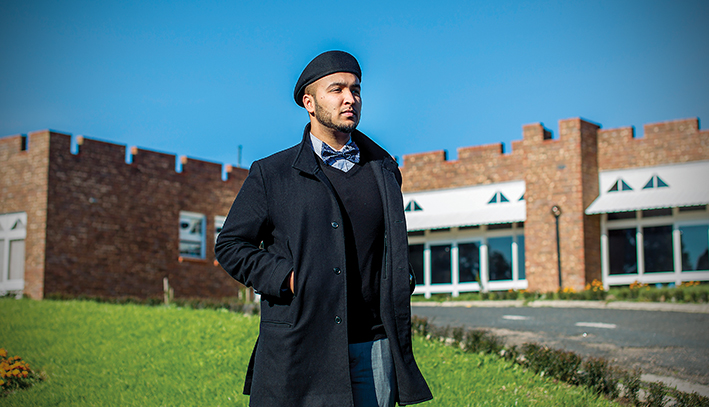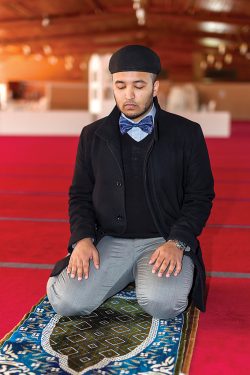 The Mornington Peninsula is known all over the country for its diversity of landscapes including some of the best beaches in the world, wild surf coast, rolling fields and unspoilt bushland as well as historic landmarks signifying some of the first British settlement in Terra Australis.
The Mornington Peninsula is known all over the country for its diversity of landscapes including some of the best beaches in the world, wild surf coast, rolling fields and unspoilt bushland as well as historic landmarks signifying some of the first British settlement in Terra Australis.
But when it comes to people and culture, less than six per cent of people in the municipality speak a language other than English at home, compared with an average of 24 per cent in metropolitan Melbourne. Less than one per cent of the peninsula’s population is indigenous. The region is one of the whitest, most culturally homogeneous places in Australia.
This is not to say we’re an intolerant bunch. More and more cultural groups are setting up camp on and near the peninsula, one of which is the Ahmadiyya Muslim Association, members of which are known as Ahmadis. I spoke to Imam Syed Wadood Janud at the group’s mosque, which is in the picturesque estate that was once the Leisureland theme park, just off the Western Port Highway near Langwarrin.
“I was in grade four when my parents moved to Australia. We were pioneers of our community in Adelaide,” he said. The global size of the Ahmadiyya movement belies the humble nature of the Langwarrin mosque. “We’re based in more than 200 countries worldwide. We have tens of millions in our movement.” But why move to a remote land with entrenched Judeo-Christian values? “Ahmadiyya communities are actually persecuted in most Muslim countries. In fact, my dad was targeted to be murdered, and it was because of this constant religious persecution that we migrated from Pakistan.”
At age 25, Syed is long on wisdom for a religious leader so young. “Jihad literally means strive and struggle; to walk on the very narrow path of spirituality.” He speaks not of the jihad perpetrated with depressing frequency in the Middle East or of the mindset that made ISIS a reality, but of a deeper, more peaceful spiritual learning. The Ahmadis are not Sunni or Shia, and harbour no ill-will toward other Muslims or any other culture.
Their peaceful nature has cost them dearly in places they should be able to call home. “We believe in all the fundamentals of Islam, however, in pretty much all Islamic countries (the exceptions being Bangladesh and Indonesia) we’ve been outlawed as ‘non-Muslims’ even though we preach and practice all the principles of Islam.” Not entirely unlike the Catholics and Protestants of old, not every branch of Islam is widely accepted.
“The only difference between our Islam and mainstream Islam is that we believe the promised reformer has already come. Sunni Muslims believe he will come, Shia Muslims say he’s supposed to come, but we believe he has presented forth and reformed Islam. All these misconceptions and all the convictions that have made their way into Islam – we believe he has rectified them. But other than that, we’re the same Islam foretold by the prophet Muhammad 1500 years ago.”
 The “promised reformer” Syed speaks of is Mirza Ghulam Ahmad of the former Sikh empire (Punjab). “He was born in 1835 and proclaimed himself as the promised reformer – the second coming of Christ, you could say. We believe him to be that person. Basically the only difference between us and the other streams of Islam is that we identify Ahmad as the promised reformer and they don’t.”
The “promised reformer” Syed speaks of is Mirza Ghulam Ahmad of the former Sikh empire (Punjab). “He was born in 1835 and proclaimed himself as the promised reformer – the second coming of Christ, you could say. We believe him to be that person. Basically the only difference between us and the other streams of Islam is that we identify Ahmad as the promised reformer and they don’t.”
It’s a point of difference that has seen Syed’s people persecuted all over the world. It inhibits their freedom to visit mosques and brings scorn from Sunni and Shia Muslims. “If this wasn’t Australia, we would be openly persecuted. Here we can attend different mosques, but they neglect us, they don’t consider our presence a Muslim presence. Wherever we go we openly declare ourselves equity Muslims.”
The daily battle for legitimacy extends to the media. “We have people who say, ‘These people aren’t Muslims – why are you approaching them for comment?’ They’re a large majority. If 1000 people tell lies every day, it becomes truth, and we don’t always get accepted. So we openly, emphatically declare ourselves to be Muslim.”
For a peaceful, tolerant people, the slander is harsh. But for brutalised people all over the modern world in need of a spiritual cause, their case is compelling. “The holy prophet, peace be upon him, prophesied that when the promised messiah came, he would abandon the jihad of before. He declared that in this day and age, there will be no jihad of war; any Muslim who goes out and proclaims jihad in the name of violence would be humiliated and destroyed. He said that the only type of jihad is that of self-reformation, of self-struggle – to be better morally, in regard to your values, in regard to your ethics.”
The importance of education features heavily in Syed’s teachings. “This is the greatest jihad to be practised in this day and age; people have deviated so far away from the true teachings of Islam. He also said the second acceptable form of jihad today is that of the pen – of literature and writing – and Ahmad proclaimed his message and his philosophy through this type of jihad. These are the types of jihad we openly preach and practice here today.”
The imam is also heavily philosophical in his faith. The violence that attracts impressionable young westerners is “quite shocking – I’ve noticed a lot of Caucasians and others who work with certain elements of Islam get attracted to this ‘brotherhood’, something they may not experience elsewhere in their lives. The notion of not being able to communicate with someone until they’ve converted too is completely un-Islamic – it has no base in true Islam.
“What’s the essential purpose of religion? It’s so that you can establish a relationship with a higher being, so you can walk on a path of spirituality, and we only preach the Islamic philosophy that before you can fulfill the rights of God, you must fulfill the rights of your fellow human beings. Just as you cannot love an artist but hate his masterpiece, so you cannot claim to love God but hate other human beings.” This philosophy is put into practice by the Ahmadiyya Muslim Association all over the world. “You’ll find them extremely accommodating to everyone, purely on the basis of their humanity. That’s why we have sub-organisations all over Africa, building and working in hospitals and schools providing free education, primary and secondary, and healthcare – these are teachers and doctors who have dedicated their lives to this cause for nothing in return.”
Their “humanity first” policy helps them connect with people of all cultures. Aside from recently holding the inaugural Conference of World Religions, Syed and his people work actively in their local community. “There’s a creek across from our mosque that we’re working with the local council to rejuvenate – building walking tracks, barbecues and benches – we call it Harmony Creek. We connect with the community across all platforms, building bridges with other religions and faiths.”
If he had one wish, it would be for people to be educated about the side of Islam they don’t see on the news. “I think many people don’t understand Islam as well as they could. I believe it to be the most accommodating and most universal of all religions. Before you become a Muslim, you must hold a fundamental belief in every single prophet that’s come before Muhammad. We regard Socrates as a prophet, Mani of Persia was a prophet. You essentially become a Buddhist, a Hindu, a Zoroaster (Zarathustra), a Jew, a Christian, you believe in Abraham, you believe in Moses, you believe in Jesus, and only then, once you’ve affirmed your belief in Muhammad, can you regard yourself as a Muslim.”
The process isn’t unique to Syed’s brand of Islam either. “That’s mainstream – it’s one of the six fundamental articles of faith in Islam. If you’re a Hindu, you must reject Moses and Abraham and Muhammad as imposters. If you’re a Jew, you must reject Jesus, Muhammad, Krishna and Buddha. But as a Muslim, you must accept all these people as people of wisdom and teaching.”
Perhaps most importantly, the way of the Ahmadis is not a response to some recent event, a tailored solution to the more violent brands of Islam prevalent in the Middle East today. “This is not something we’ve come up with post-Gulf War or post-Islamic State, this is something we’ve been practising and teaching since 1889 – the formation of our community. It’s become even more relevant today, to proclaim these peaceful teachings at a time when Islam is being regarded as a religion of hate, a religion of war.”
Syed is frustrated by the media focus on beheadings of Westerners by ISIS. “More than 11,000 Muslims have been beheaded – imams, men, women and children – anyone who doesn’t pledge allegiance. The streets are lined with heads. There are 1.6 billion Muslims but just 30,000 ISIS fighters. ISIS does not represent Islam.”
Syed wanted to be a cricketer when he was young. Later, in year 10, a vocational counsellor asked him what he wanted to be. “I want to be an imam,” Syed told him. The counsellor took off his glasses and looked at him directly: “In all the years I’ve been a counsellor, you’re the first person who wanted to be an imam.”



